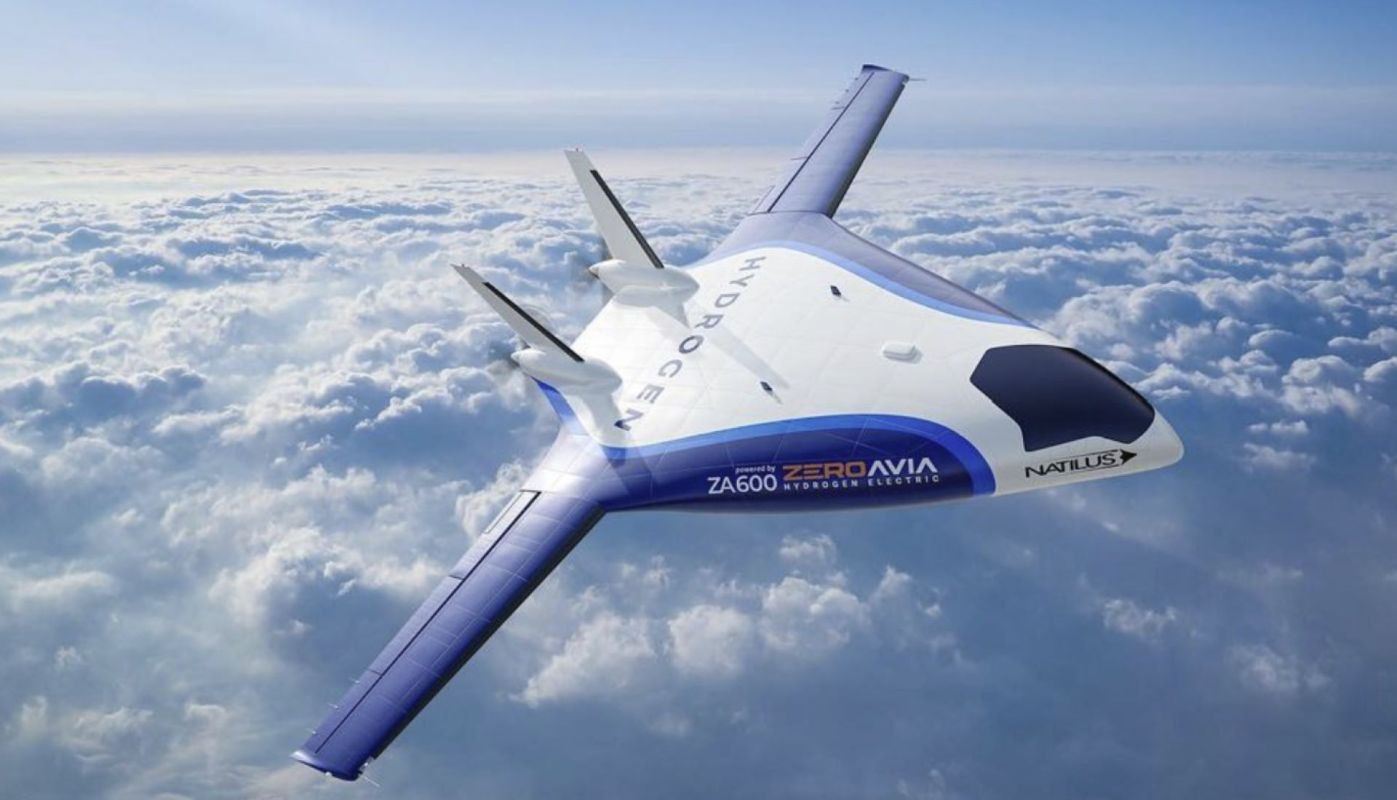Natilus, a California company developing unmanned aerial vehicles (UAVs) to ship air cargo, is teaming up with ZeroAvia, a British/American hydrogen-electric aircraft developer, to produce a zero-pollution autonomous cargo plane.
Natilus will be using ZeroAvia's ZA600 hydrogen-electric engine as a propulsion option on its blended wing body (BWB) cargo plane, the company stated in a release.
The strategic partnership has the potential to start replacing traditional cargo planes that emit planet-warming pollution into the atmosphere.
Although the planet-warming contribution of airplanes is relatively small, creating 1.9% of all toxic gas pollution, the aviation sector is expected to increase by an average of 4.3% per year over the next 20 years.
Today, at any given moment, there are around 5,000 flights over U.S. airspace. We can expect to see many more in the sky as the years go by, and it will be increasingly important to eliminate the amount of toxic pollution the sector releases into our atmosphere.
ZeroAvia is among the more prominent zero-pollution airplane developers that have actually put aircraft into the sky and continue to do so.
This past January, the company's ZA600 hydrogen-electric engine was attached to a 19-passenger plane that was able to take flight, as Electrek reported. ZeroAvia now has experimental certification from both the CAA (U.K.) and FAA (U.S.) secured, plus $10 billion in pre-orders.
Natilus, which develops self-piloting cargo planes, is demonstrating its confidence in ZeroAvia's 600kW hydrogen-electric propulsion system by considering its incorporation as an alternative technology in its Kona aircraft.
The Kona plane, with a wingspan of 85 feet, could potentially benefit from this advanced propulsion option, Electrek reported.
Although it does not have a fully operational full-size cargo plane, Natilus has managed to secure an impressive position in the industry.
The company has proudly announced order commitments amounting to more than $6.8 billion, with a tally of over 460 aircraft pre-orders from major airlines. This means it may not be long before we start seeing them in the skies.
In the press release, Val Miftakhov, Founder and CEO of ZeroAvia, said: "Given Natilus' impressive order book and corresponding technology development, working together on integrating the ZA600 as a line-fit engine for Kona can multiply the [pollution reduction] and costs benefits that are already interesting cargo operators."
Meanwhile, Aleksey Matyushev, Co-founder and CEO of Natilus, expressed the following: "Natilus has a long-term commitment to being a responsible steward of our environment … The Natilus-ZeroAvia partnership goes further, bringing the talents and innovations of the two companies together to deliver much-needed innovation in the air cargo delivery industry."
Join our free newsletter for weekly updates on the coolest innovations improving our lives and saving our planet.









